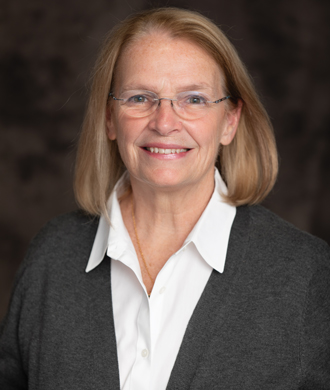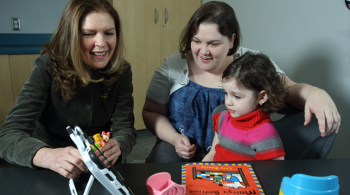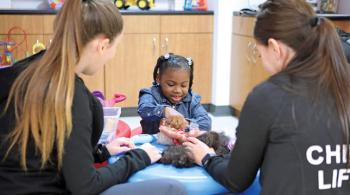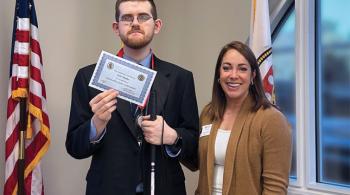
With the current shortage of specialists in neurodevelopmental disorders and pediatric mental healthcare, pediatricians and primary care providers across the country are looking for ways to learn about and manage children with these diagnoses as quickly and thoroughly as possible.
To address this need, experts at Kennedy Krieger Institute have developed evidence-based, online courses that offer just-in-time learning for professionals, including teachers and social workers, as well as for trainees. Called the Kennedy Krieger Instruction in Neurodevelopmental Disorders Curriculum, also known as KIND, it covers 90 topics over nine courses, with about 20 15-to-20-minute modules per course, explains neurodevelopmental pediatrician Dr. Mary Leppert, who developed the program with child and adolescent psychiatrist Dr. Joyce Harrison.
“KIND provides a deep dive into specific topics of neurodevelopmental disorders and the behavioral and mental health conditions that co-occur with them,” Dr. Leppert says. “It’s perfect for addressing the practitioner shortage in these fields.”

Dr. Mary Leppert
Dr. Leppert has been working on KIND for the past decade. She got the idea for it while mentoring trainees at Kennedy Krieger—she wanted them to be able to learn about more than what they could observe in clinical settings.
This work is an imperative for the Institute.” – Dr. Mary Leppert
She and Dr. Harrison collaborated with experts across Kennedy Krieger and Johns Hopkins Medicine to develop the content for the modules, which have been designed in an accessible online format. KIND is currently in a pilot phase, with a general rollout expected in 2024.
“The Institute is a flagship for neurodevelopmental disabilities research, and this takes our collective knowledge outside Kennedy Krieger,” Dr. Leppert says. “This work is an imperative for the Institute—it’s part of our mission to use what we know to help as many children as possible.”















